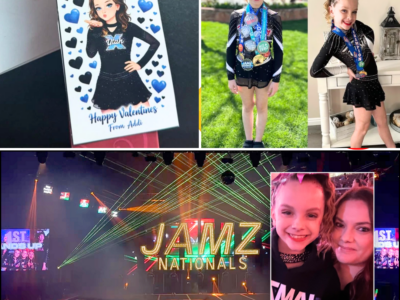A fantastical series about the very short-term 16th century queen Lady Jane Grey takes historical liberties in the name of reclamation — and fun.

Lady Jane Grey is generally considered a tragic heroine, the teen queen of England and Ireland for nine days in 1553 before her foes manipulated her into an early death by execution. As the cheeky narrator of the Amazon series “My Lady Jane” puts it, “History remembers her as the ultimate damsel in distress.”
He then adds, using a vulgar term for “forget”: “[Expletive] that. What if history were different?”
This is the animating question (and tone) of “My Lady Jane,” which premiered on Prime Video on Thursday. Playful, optimistic, a little raunchy, this take on the Jane Grey story plays like an R-rated version of “The Princess Bride,” with touches of everything from “A Knight’s Tale” to the cult Britcom favorite “Blackadder.”
It is also just the latest of a handful of recent series that feature strong women attempting to wrest control of their destinies in the oppressively patriarchal societies of 16th- and 17th-century Europe, a period perched between the Middle Ages and the stirrings of modernity.
These shows take liberties with history, none more so than “My Lady Jane.” Like the real historical figure, the title character, played by Emily Bader, is an educated and strong-willed young woman. Unlike the real Jane, the fantasy version is also able to outfox the political and religious forces conspiring against her, with swashbuckling flair and a self-knowing wink. There is also colorblind casting: King Edward VI (Jordan Peters) and one of his sisters, Bess (Abbie Hern), are Black, a decision made by the show’s producers in adapting the series from the novel by Brodi Ashton, Cynthia Hand and Jodi Meadows.
And oh, yes: The show has human characters who turn into horses, dogs, snakes and other animals. (Those didn’t really exist).
For the showrunners, Gemma Burgess and Meredith Glynn, the series offered a chance to reclaim Jane from the cruelties of history — and have a bit of fun in the process.
“She was one of the most educated women of her time,” Glynn said in a recent video interview alongside Burgess. “But she was still used as a pawn by her ambitious family and ultimately murdered. We had the opportunity to retell her story in a way that gives her a chance to be the hero of her tale, instead of somebody who’s the victim, who we remember only because of her death.”
Image

One of the showrunners used to have a poster of Paul Delaroche’s “The Execution of Lady Jane Grey” (1833) on her wall.Credit…The National Gallery, London
To a large extent, of course, Jane was a victim — essentially put to death by her enemies through a complex series of machinations. In rewriting history, does the series also risk whitewashing it? The historian Dr. Joanne Paul, a historical consultant for “My Lady Jane,” said it wasn’t an issue for her.
“I’ve never been someone who’s precious about history when it’s presented in a dramatic format,” Paul said. “I understand the importance of telling a story, and I understand how television and movies can bring people into history and make them curious about what really happened. And I think that that’s a fantastic thing.”
Much of the history of Lady Jane Grey, especially that published closer to her times, came from a male perspective. As Bader put it in a separate video interview: “We’ve been given a very loose sort of stereotype image of these helpless women. If you were to go back to those times, it was difficult. But I’m sure these women were also incredibly colorful and involved and complicated.”
Other recent series don’t take quite the same kind of historical liberties. “The Serpent Queen,” Season 2 of which premieres on July 12 on Starz, stars Samantha Morton as Catherine de’ Medici, the Italian-born Queen of France in the 16th century who developed her iron will as a Florentine orphan. The limited series “Mary & George,” also on Starz, shows how Mary Villiers (Julianne Moore) maneuvered her son George (Nicholas Galitzine) into the bedchamber of the promiscuous King James I of England, going on to become the Countess of Buckingham.
Each show plays a little fast and loose with the details — the precise nature of James and George’s intimacy, for example, has long been debated by scholars. But nobody is turning into a horse here.
Still, both have distinctively modern sensibilities. “The Serpent Queen” is happy to shatter the fourth wall. “Mary & George” features copious and graphic sex, both straight and gay. And they share with “My Lady Jane” a mission to spotlight their heroines’ sense of agency, which chroniclers of the time often overlooked.
Image

Samantha Morton stars as Catherine de’ Medici in “The Serpent Queen.”Credit…Starz
Image

In “Mary & George,” Julianne Moore and Nicholas Galitzine star as a mother and son manipulating King James I. (With Sean Gilder, left.)Credit…Starz
“Patriarchy was built into every part of life for everyone,” said Paul, the historian, whose recent book “The House of Dudley: A New History of Tudor England” includes the story of Lady Jane Gray.
“And then you add on top of that the dangers of childbirth, the high infant mortality rates and the clothing that they were forced into and everything else,” Paul continued, “and it was a horrible time to be a woman.”
Burgess first fell in love with “My Lady Jane” after she saw a woman reading the novel intently on a New York subway. Both she and Glynn had been obsessed with Lady Jane Gray as teens; Burgess had a poster of a Paul Delaroche painting depicting a blindfolded Lady Jane, just before her beheading. (It was right next to Burgess’s Donnie Wahlberg poster). She ate up the 1986 movie “Lady Jane,” starring Helena Bonham Carter. Like most, she saw Lady Jane as a tragic heroine.
With “My Lady Jane,” Burgess and Glynn wanted to present a different kind of story — something playful, even hopeful, but also offhandedly substantive. The metamorphic characters, known as Ethians (which, like most of the series’s major elements, originated in the novel), and the regular humans, known as Verities, represent the Protestant-Catholic schism at the heart of the real story. (Lady Jane was Protestant; her foes, including her successor, Mary I, were Catholic)
Hunted and persecuted, the Ethians allow “My Lady Jane” to skirt the subject of religion without sacrificing the deadly conflicts of the period.
“The Ethians are a metaphor for any kind of other-ism that we might encounter,” Burgess said. “We wanted this to be a backdrop to the story, but we don’t want the show to be a polemic about any subject in particular. We want this to be a really entertaining, swashbuckling romp.”
Glynn added: “Intelligent optimism. That’s what we keep repeating to ourselves.”
Much of that spirit is captured in the way “My Lady Jane” uses music. Aside from their mutual Lady Jane fandom, Burgess and Glynn also share a passion for bands of the British Invasion — the Yardbirds, the Troggs and others. But they wanted the soundtrack to reflect Lady Jane’s empowerment. So they ended up including cover versions of British classics as performed by female artists, among them a cover by Lizzie Esau of the Yardbirds’ version of “I’m a Man,” commissioned for the series, and an existing take on David Bowie’s “Rebel Rebel” by Tegan and Sara.
“We knew we wanted to use that music even when we were in the writers’ room,” Glynn said. “It works with the show because we’re retelling British history with a female voice,” Burgess added. “And we’re retelling British musical history with female voices.”
Paul sees shows like “My Lady Jane,” “The Serpent Queen” and “Mary & George” as part of a larger trend toward tweaking specific historical periods while also retaining the qualities that make those periods compelling in the first place. She cited the TV series “Bridgerton” and “Our Flag Means Death,” and even Broadway hits like “Hamilton” and “Six,” as other examples of what she called “alt-history.”
“I think it comes from a sort of revolutionary impulse to overthrow something, to rewrite something, while still understanding that there’s something of value to what’s being overthrown,” she said. With “My Lady Jane,” she added, “they want to reclaim her as an agent and invest her with something modern, and to rescue her and revive her.
“It sits somewhere in the multiverse of the Tudor period. Somehow it’s just an alternate dimension.”

